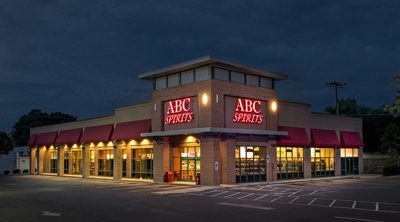
DURHAM — Nearly a year and half after his initial run in with the state’s Alcohol Law Enforcement Agency, the owner of Durham’s Mystic Farm & Distillery says the two sides have put down their swords and settled the score at least for now. The chairman of the North Carolina ABC Commission, AD “Zander” Guy, Jr. has issued an order vindicating Mystic’s owner, Jonathan Blitz, regarding alleged violations of the state’s alcohol possession laws as they apply to distilleries. The judge also ruled that any evidence seized be returned to Blitz within 45 days of the order.
The litigation stems from an incident back in November of 2019 in which, during a regular ALE inspection, an agent spotted 17 bottles of whiskey in Mystic Farm’s kitchen. According to the ALE, those whiskey bottles were illegal because they didn’t contain whiskey produced by Mystic. By state law distillers must have a mixed beverage permit in order to sell other people’s liquor, and the ALE mandates distillers clearly separate its commercial and retail operations. In this case the agency said Mystic’s kitchen was also on the retail “side” of things. Blitz pushed back arguing the bottles being seized were reference samples, commonly used as a means of comparison. A week later the agent went back to Mystic, confiscated the bottles, suspended its permit for 10 days, and hit Blitz with a $1,000 fine. Mystic refused to pay the fine and filed a countersuit against the ABC Commission. He just recently won the injunction.
“This entire case is over what I see as one agency’s attempts to just make up and then enforce their own unwritten laws against members of the distilling industry,” says Blitz. “Just like our regulators expect us to follow the law, we expect them to follow the law, and in my view the ALE was outside their legal authority.” Blitz says the unfortunate thing is that even after four rounds of litigation and a court ruling in his favor, the ALE still won’t return his calls, and he had to do everything through the ABC Commission including actually going over to their operation in order to retrieve his 17 bottles of spirits.
North Carolina is a control state which means that the ABC Commission approves all spirits that are sold in that state, sets the price of spirits based on the formula set in law, and requires products to be shipped to the State ABC warehouse for distribution to its 171 ABC Boards. These requirements apply to all suppliers—in or out of state. In general, N.C.’s regulatory environment for distilleries is similar to other control states however N.C. is unique in that liquor is sold through government run ABC stores that are operated by 171 ABC Boards where employees work for the board. In other control states the employees are often employed directly by the state government.
While still heavily controlled, experts say the regulatory environment for N.C. distillers has actually significantly improved from where it was in 2015. This they say is largely due to the efforts of The Distillers Association of N.C. (DANC). Carol Shaw, DANC’s Executive Director, cites SB 290, enacted during the 2019 legislative session, as one of most major improvements. The law primarily removes limits on bottle sales and serving alcohol on-premises, offering enhanced revenue streams and broadened access for consumers seeking these local products.
Overall, NC’s distilling industry has weathered the COVID-19 pandemic fairly well compared to other local industries like restaurants and hospitality. Distillers were never required to stop producing spirits during the pandemic and the production of hand sanitizer helped to provide some revenue when bottle sales were restricted by stay-at-home orders. Shaw says the two-month closure of distillery tasting rooms from March – May 2020 dealt a blow to the businesses because it limited retail bottle sales. Distilleries were allowed to reopen tasting rooms last May, and some distilleries are now also offering mixed beverages and other alcoholic beverages to visitors under the same restrictions that apply to restaurants. “To sum it up, the pandemic has affected the distilling industry in NC and slowed its growth, but the industry is still expanding now that restrictions are easing,” Shaw says.
In looking ahead to the 2021 legislative session, Shaw says DANC is focused on seeking more parity with breweries and wineries. “For example, breweries and wineries can sell their products for off-premises consumption at special events where tastings occur. Right now, distilleries cannot. Visitors to breweries and wineries are not required to receive a tour in order to purchase their products. Visitors to distilleries are required to receive a tour prior to purchasing bottle of their spirits. We will continue to work with and provide comments to the ABC Commission as they draft rules so that the Commission understands how the rules will affect NC’s distilling industry.”
For his part, Jonathan Blitz says he is happy his case is finally settled but there is always one more uphill battle to fight when it comes to working under the ABC and ALE. Blitz says just recently the commission suggested they will issue new rules for distilleries requiring them to build whole new facilities on their property in order to sell spirits. Blitz says everyone in his industry is fed up and will keep pushing back on what he says are attempts to interpret various rules in various ways.
“I think the biggest problem is when you have two agencies that are supposedly independent and there is no consensus about how to treat NC distillers under the supposed law, well that is terrifying. The worst thing for business is to not have a consistent agreed upon set of rules. If you tell me what the rules are I’ll follow them but if you can’t tell me what they are that is truly terrifying.”



